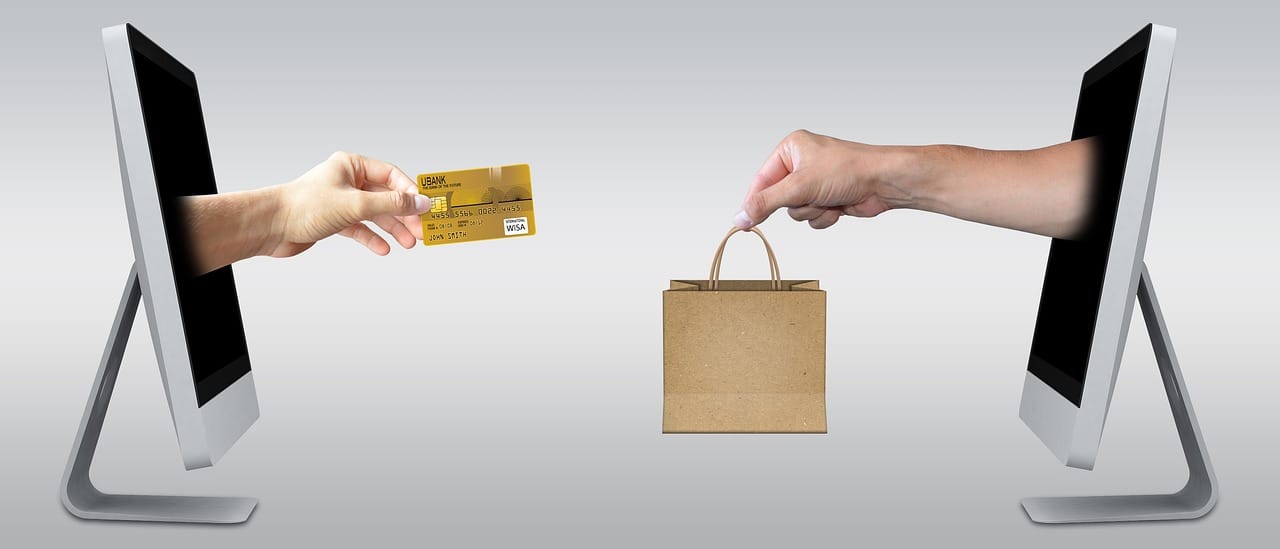The Mindset Shift | Understanding the Psychological Effects of Economic Uncertainty on Retail Shopping
Navigate retail in uncertain times. Explore the psychology of economic instability on shopping habits. Adapt your mindset for smarter retail choices

In today's dynamic economic landscape, the psychology of consumer behavior during times of uncertainty plays a pivotal role in shaping retail shopping patterns. This article aims to delve into the intricate relationship between the human mind and economic instability, particularly in the context of retail shopping. By understanding the psychological effects of economic uncertainty, retailers can gain valuable insights to adapt their strategies and cater to the evolving needs of consumers. Join me as we explore the impact of economic uncertainty on retail shopping behavior and discover effective coping strategies for retailers in navigating these challenging times.
The Psychology of Consumer Behavior During Economic Uncertainty
Economic uncertainty exerts a profound influence on consumer behavior, triggering a series of cognitive and emotional responses that directly impact retail shopping patterns. The inherent fear of financial insecurity prompts individuals to adopt a cautious approach towards their spending habits, leading to a heightened sense of risk aversion. This shift in mindset often manifests in altered purchasing decisions, with consumers gravitating towards essential items while reducing discretionary spending. Additionally, the fear of potential job loss or income reduction amplifies the perceived financial risk, prompting individuals to prioritize saving over indulgent purchases.

Moreover, economic uncertainty fosters a climate of heightened anxiety and stress, further influencing consumer behavior. The pervasive sense of unease stemming from economic instability can instigate emotional distress, causing individuals to seek solace in familiar and reassuring consumption patterns. This inclination towards comfort-driven shopping is reflected in the increased demand for nostalgic products or established brands that evoke a sense of security and nostalgia. Understanding these psychological undercurrents is imperative for retailers seeking to realign their strategies and establish meaningful connections with consumers during times of economic uncertainty.
Impact of Economic Uncertainty on Retail Shopping Behavior
The tangible repercussions of economic uncertainty on retail shopping behavior are multifaceted, encompassing a spectrum of nuanced shifts in consumer preferences and purchasing patterns. As individuals navigate the tumultuous economic landscape, their shopping behavior undergoes a significant transformation, characterized by discerning choices and a pronounced emphasis on value and utility. The heightened financial prudence arising from economic uncertainty prompts consumers to adopt a more deliberate approach towards their purchases, prioritizing practicality and longevity over frivolous indulgence.
In addition, the pervasive climate of uncertainty engenders a collective shift towards frugality, prompting consumers to scrutinize their expenditure and seek cost-effective alternatives. This inclination towards thriftiness is evident in the increased traction of budget-friendly product categories and the burgeoning popularity of value-driven promotions and discounts. Furthermore, economic uncertainty fosters a heightened emphasis on the concept of perceived value, compelling consumers to assess their purchases through the lens of long-term utility and functionality. This reevaluation of value underscores the imperative for retailers to recalibrate their offerings and messaging to align with the evolving priorities of consumers amidst economic uncertainty.
Coping Strategies for Retailers During Economic Uncertainty
Navigating the complexities of economic uncertainty necessitates a strategic recalibration of retail operations, encompassing a proactive and adaptive approach to cater to the evolving needs of consumers. As retailers confront the formidable challenges posed by economic instability, the formulation of effective coping strategies emerges as a crucial imperative. Embracing agility and flexibility in adapting to the evolving consumer landscape is pivotal, entailing a comprehensive reassessment of product assortments, pricing strategies, and promotional initiatives to resonate with the shifting priorities and preferences of consumers.
Furthermore, fostering a culture of empathy and understanding towards the financial constraints and apprehensions of consumers can engender a sense of trust and loyalty, fortifying the retailer-consumer relationship. By proactively acknowledging the prevalent economic concerns and tailoring offerings to provide tangible value and support, retailers can cultivate a sense of solidarity and rapport with their consumer base. Additionally, the integration of innovative and personalized experiences, both in-store and online, serves as a potent tool for retailers to engender consumer engagement and forge enduring connections amidst economic uncertainty.
CTA: Embrace the power of consumer psychology and adapt your retail strategies to thrive in times of economic uncertainty. Explore our comprehensive guide on leveraging consumer emotions and evolving shopping behaviors to enhance your retail success.
Case Studies on Successful Retail Strategies During Economic Uncertainty
Amidst the backdrop of economic uncertainty, several retail entities have demonstrated resilience and adaptability, navigating the challenges presented by volatile economic conditions to emerge as exemplars of strategic acumen and consumer-centric innovation. By examining these case studies, retailers can glean invaluable insights and best practices to inform their own strategies, drawing inspiration from the success stories of their counterparts in the retail landscape.
One such compelling case study revolves around the proactive embrace of value-driven initiatives by a renowned apparel retailer in response to economic uncertainty. By recalibrating its pricing strategy to emphasize affordability and value, the retailer succeeded in resonating with the cost-conscious consumer segment, thereby fortifying its market positioning and fostering sustained consumer loyalty. Furthermore, the seamless integration of digital channels to augment the in-store experience and expand the reach of its offerings served as a pivotal catalyst for sustained growth and consumer engagement amidst economic turbulence.

Another noteworthy case study pertains to the strategic pivot of a luxury cosmetics brand, which leveraged the emotive power of nostalgia and familiarity to establish a compelling narrative that resonated with consumers amidst economic uncertainty. By channeling consumer sentiments of reassurance and comfort, the brand successfully cultivated a loyal consumer base, transcending the challenges posed by economic instability. Additionally, the brand's adept utilization of digital marketing channels to curate immersive and personalized experiences bolstered its resilience and sustained relevance in the face of economic uncertainty, exemplifying the transformative potential of consumer-centric innovation.
Understanding Consumer Emotions and Decision-Making During Economic Uncertainty
The intricacies of consumer emotions and decision-making processes during periods of economic uncertainty constitute a pivotal facet of understanding and navigating retail shopping behavior. The prevailing climate of economic instability precipitates a myriad of emotional responses and cognitive dissonance within consumers, profoundly influencing their purchasing decisions and brand perceptions. By unraveling the nuances of consumer emotions and decision-making, retailers can effectively tailor their strategies and messaging to resonate with the evolving needs and aspirations of consumers amidst economic uncertainty.
The emotional terrain traversed by consumers during economic uncertainty is characterized by a spectrum of sentiments, ranging from apprehension and anxiety to resilience and adaptability. Understanding the interplay of these emotions is instrumental in crafting resonant and empathetic brand narratives that strike a chord with consumers, fostering a sense of connection and understanding. Furthermore, the cognitive processes underpinning consumer decision-making undergo a discernible transformation, with heightened emphasis on risk assessment, value perception, and brand affinity shaping the contours of purchasing behavior.
The Role of Trust and Brand Loyalty in Retail Shopping During Economic Uncertainty
In the volatile landscape of economic uncertainty, the bedrock of trust and brand loyalty assumes heightened significance, wielding profound influence in shaping consumer preferences and purchasing decisions. The cultivation of trust and brand loyalty emerges as a strategic imperative for retailers seeking to navigate the turbulent terrain of economic uncertainty, underpinning enduring consumer relationships and sustained business resilience. By engendering a sense of trust and fostering brand loyalty, retailers can fortify their market positioning and insulate themselves against the disruptive forces of economic instability.
The establishment of trust within the consumer psyche hinges on the retailer's ability to engender transparency, reliability, and accountability, thereby fostering a sense of assurance and credibility. By consistently delivering on promises and prioritizing consumer well-being, retailers can cultivate a sense of trust that forms the cornerstone of enduring brand-consumer relationships. Furthermore, the cultivation of brand loyalty necessitates a proactive and empathetic engagement with consumers, entailing personalized experiences, value-driven initiatives, and a genuine commitment to addressing consumer needs amidst economic uncertainty.
Adapting Marketing and Pricing Strategies in Response to Economic Uncertainty
The tumultuous landscape of economic uncertainty mandates a strategic recalibration of marketing and pricing strategies, aligning with the evolving priorities and sensitivities of consumers amidst financial instability. The formulation of agile and adaptive marketing initiatives serves as a potent tool for retailers to resonate with consumer sentiments and engender enduring connections, augmenting brand resilience and consumer engagement. By leveraging consumer insights and emotional triggers, retailers can craft compelling narratives that resonate with the prevailing consumer mindset, fostering a sense of relevance and understanding.
Equally pivotal is the recalibration of pricing strategies to align with the cost-conscious inclinations of consumers amidst economic uncertainty. The strategic deployment of value-driven pricing initiatives, such as competitive pricing, bundle offers, and value-added promotions, serves as a potent mechanism for retailers to fortify their market appeal and resonate with the discerning consumer segment. Furthermore, the seamless integration of pricing transparency and flexibility augments consumer trust and confidence, fostering a sense of assurance and credibility amidst economic uncertainty.
Leveraging Digital Marketing and E-commerce During Economic Uncertainty
The transformative potential of digital marketing and e-commerce assumes heightened prominence in the context of economic uncertainty, offering retailers a dynamic platform to engage consumers and cultivate enduring brand relationships. In an era characterized by digital immersion and evolving consumer preferences, the strategic embrace of digital marketing and e-commerce emerges as a pivotal imperative for retailers seeking to navigate the complexities of economic instability. By harnessing the expansive reach and immersive potential of digital channels, retailers can fortify their market positioning, augment consumer engagement, and foster sustained growth amidst economic uncertainty.
The strategic deployment of digital marketing initiatives enables retailers to curate compelling and personalized narratives that resonate with the prevailing consumer emotions and aspirations, fostering a sense of connection and relevance. By leveraging consumer insights and behavioral analytics, retailers can craft targeted and impactful marketing campaigns that transcend the barriers of economic uncertainty, cultivating enduring brand-consumer relationships. Furthermore, the seamless integration of e-commerce platforms offers consumers a convenient and secure avenue to access products and services, underscoring the imperative for retailers to embrace digital channels as a potent mechanism for sustained relevance and consumer engagement.
Creating a Positive Shopping Experience During Economic Uncertainty
Amidst the pervasive climate of economic uncertainty, the creation of a positive and immersive shopping experience assumes heightened significance, serving as a potent mechanism for retailers to foster enduring consumer relationships and fortify their market appeal. By prioritizing consumer-centric initiatives and immersive experiences, retailers can engender a sense of reassurance and comfort within consumers, forging enduring connections that transcend the challenges posed by economic instability. The strategic integration of personalized and empathetic experiences serves as a catalyst for sustained consumer engagement and brand resonance, underscoring the transformative potential of positive shopping experiences amidst economic uncertainty.
The creation of a positive shopping experience necessitates a proactive and empathetic engagement with consumers, entailing personalized services, seamless transactions, and a commitment to addressing consumer needs amidst economic uncertainty. By fostering an environment of trust and reliability, retailers can engender a sense of assurance and comfort within consumers, fortifying their market positioning and insulating themselves against the disruptive forces of economic instability. Furthermore, the cultivation of immersive and experiential retail environments, both in-store and online, serves as a potent mechanism for retailers to augment consumer engagement and fortify their brand resonance amidst economic uncertainty.
In conclusion, the psychological effects of economic uncertainty exert a profound influence on retail shopping behavior, underscoring the imperative for retailers to embrace consumer-centric strategies and empathetic engagement to thrive in challenging times. By understanding the nuanced interplay of consumer emotions, decision-making processes, and brand perceptions amidst economic uncertainty, retailers can recalibrate their strategies and foster enduring connections that transcend the disruptive forces of economic instability. The strategic embrace of digital marketing, immersive experiences, and value-driven initiatives serves as a potent mechanism for retailers to navigate economic uncertainty, fortifying their market appeal and augmenting consumer engagement.
As we chart a course towards the future, the landscape of retail shopping during economic uncertainty is poised to witness continued evolution and transformative innovation, underpinned by the strategic recalibration of consumer-centric initiatives and the seamless integration of digital channels. By embracing the power of consumer psychology and adapting retail strategies to resonate with the prevailing consumer mindset, retailers can navigate the complexities of economic uncertainty and emerge as exemplars of resilience and strategic acumen. The future outlook for retail shopping amidst economic uncertainty heralds a landscape characterized by empathetic consumer engagement, immersive experiences, and sustained relevance, underscoring the transformative potential of consumer-centric innovation in navigating challenging economic terrains




